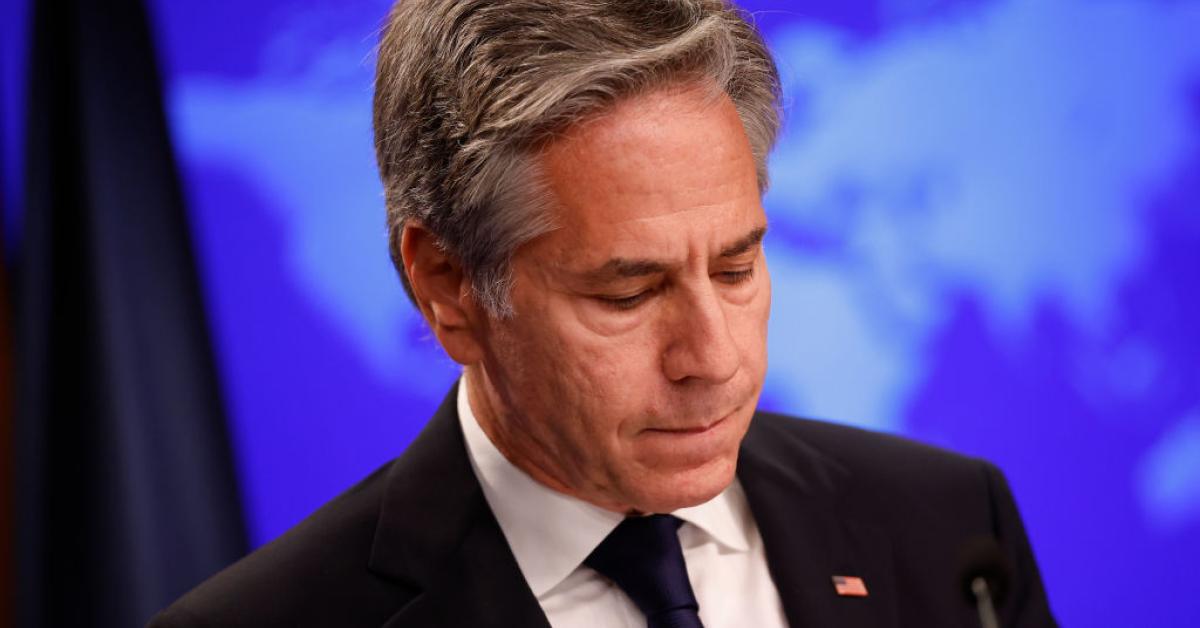We support our Publishers and Content Creators. You can view this story on their website by CLICKING HERE.

The State Department and its Global Engagement Center were already known for their participation in a private consortium to mass-report purported election misinformation – including Just the News reporting – to social media platforms for suppression, promotion of antipopulist internet games abroad and funding of disinformation cops that target Americans.
They tried to shame Twitter before Elon Musk’s purchase into removing nearly a quarter-million accounts, including those for the Canadian military and CNN, but Twitter executives mocked the validity of their supposed propaganda lists, with one noting GEC funded a campaign against Iranian antiwar activists.
The House Small Business Committee revealed another facet of GEC in an interim staff report on “small entities who purposely interfere with the ability of small domestic businesses to compete online because of their lawful speech” and “tech start-ups and other small businesses with products used to surveil and ultimately suppress lawful speech.”
While broadly accusing GEC of exceeding its foreign focus, majority Republicans singled out its comically bad record-keeping, as evidenced by just the “fraction of the documents” the committee has received since requesting them in June 2023. Republicans put out the report last week to seemingly embarrass State for claiming it cannot fulfill their June 2024 subpoena until spring 2026.
The “subaward records alone” suggest wider problems, the report says: Several recipients are only tracked by “categories” such as “Radio Programmes” ($240,136) rather than specific organizations or individuals, and six list only the subawardee’s first name.
One acknowledges unknown “subpartners” and another lists a single subaward to NewsGuard from Park Advisors ($50,000) when a second ($25,000) is publicly known. (The report drolly notes Park Advisors’ website is now solely composed of “a picture of trees.”)
Former State employee Christina Nemr at the time led Park Advisors, whose nearly $3 million contract to create GEC’s Disinfo Cloud does not appear to be included on USAspending.gov. A lawsuit against State alleges Nemr resurrected Disinfo Cloud as Becera in January 2022 and has since received over $1 million in State awards as a sub-grantee.
The July special inspector general’s report on the U.S. Agency for International Development, which “could not demonstrate compliance with its award requirements for at least $239 million” distributed in Afghanistan, suggests a “more widespread issue” at State, the report says.
Committee investigators found “ten publicly available GEC direct awards that were not disclosed,” and State took nearly a year to determine that each “had been improperly logged as a GEC award by various embassies. … If this Committee’s narrow review of recent GEC awards alone found ten errors, it is reasonable to conclude similar errors exist department-wide.”
Republican lawmakers emphasized their concern was limited to government involvement.
“Two-sided marketplace platforms changed their [terms of services] at the behest of the Biden-Harris White House, interfering with impacted businesses’ sales revenue,” they claimed. “If the private companies were making these content moderation decisions on their own volition, without government interference, that is their right.”
GEC’s promotion of “press credibility-rating organizations whose main function is to demonetize news and information outlets” for spreading purported mis-, dis- and mal-information, by targeting their advertising revenue, violates the First Amendment, the report says. The ratings are based on “whether narratives are deemed harmful, divisive, or sensational,” not fact.
State has turned over only “two heavily redacted lists of awardees” since summer 2023, “with none of the requested award application, risk assessment, or contract information,” despite being “subject to several overlapping investigations which would have caused them to already compile relevant information,” the report says.
“Some award recipients, such as Albany Associates International and the Atlantic Council and its [Digital Forensic Research Lab], have been examined in depth by other Congressional committees and investigative journalists; most have not been thoroughly reviewed,” it says.
The committee focuses on GEC because it “coordinates directly with the private sector” for its mission of “countering foreign disinformation,” yet “administers taxpayer dollars to small private entities” that target American businesses and offer surveillance products to U.S. and foreign governments “heavily involved in the censorship apparatus.”
GEC had to ignore “verbatim” disclosures in some award applications that the applicants “focused on the speech of businesses based in the U.S.”, the report says. It’s required to do “extensive vetting of each awardee,” some of whom “tout ideological beliefs as fact,” and “disinformation detection tool” before funding and promoting them.
GOP lawmakers also accused the nonprofit National Endowment for Democracy, “funded almost entirely by Congressional appropriations,” of violating its limits by working with the U.K.-based Global Disinformation Index among others.
NED received about $300 million from the feds in fiscal 2022, “and when a supposedly bipartisan organization with international restrictions has staff using their NED email to discuss the legitimacy of domestic press outlets, combined with funding of organizations like the GDI, it is indicative of rot,” the report says.
Biden administration officials responded to scrutiny prompted by former Rolling Stone journalist Matt Taibbi by insinuating to Congress in a private document review that he was “not to be trusted” due to “unsavory conduct in Russia” as a younger journalist, a “source close to” State told Washington Examiner reporter Gabe Kaminsky, who wrote the series “Disinformation Inc.”
That so-called in camera review, which prohibited the committee from making copies of State documents and limiting staff to taking notes for its investigation, was the department’s response to its documents marked “sensitive but unclassified” and “not for public release” showing up in Kaminsky’s series, the Examiner reported in February.
Taibbi recounted his time in Russia and his treatment by the feds – including an IRS visit to his New Jersey home after he testified in Congress about federally tinged censorship – in an essay Thursday, distinguishing it from the state violence Russian journalists faced.
“Six weeks before the lancing of the boil that is the Trump-Harris election, officialdom has never been antsier,” he wrote. “There’s desperation up there and the more bureaucratically thuggish tactics employed by agencies like GEC have not scratched their itch of uncertainty.”
Kaminsky’s claim about the feds tarring Taibbi followed a New York Post report on internal documents showing State tried to “denigrate” Taibbi and Kaminsky for their reporting on GEC’s funding of GDI, which sought to blacklist non-liberal media outlets with advertisers, and link Rep. Jim Banks, R-Ind., to “Russian influence operations.”
State’s guidance to its press officers claimed the journalists violated the correct procedures for interviews, Taibbi’s Twitter Files thread was internally contradictory, and that Musk publicly misstated what Taibbi found. State itself confirmed to CNN, however, that GEC pointed Twitter to nearly 250,000 supposed Chinese propaganda accounts.
The department faulted Banks by falsely implying he talked to Russian state media about GEC, when it was actually paraphrasing Kaminsky’s report that quoted Banks supporting “legislation to ban federal funding of anti-free speech groups.”
Neither State nor GEC responded to Just the News queries for their response to the committee report and allegations about denigrating the journalists and Banks.

 Conservative
Conservative  Search
Search Trending
Trending Current News
Current News 





